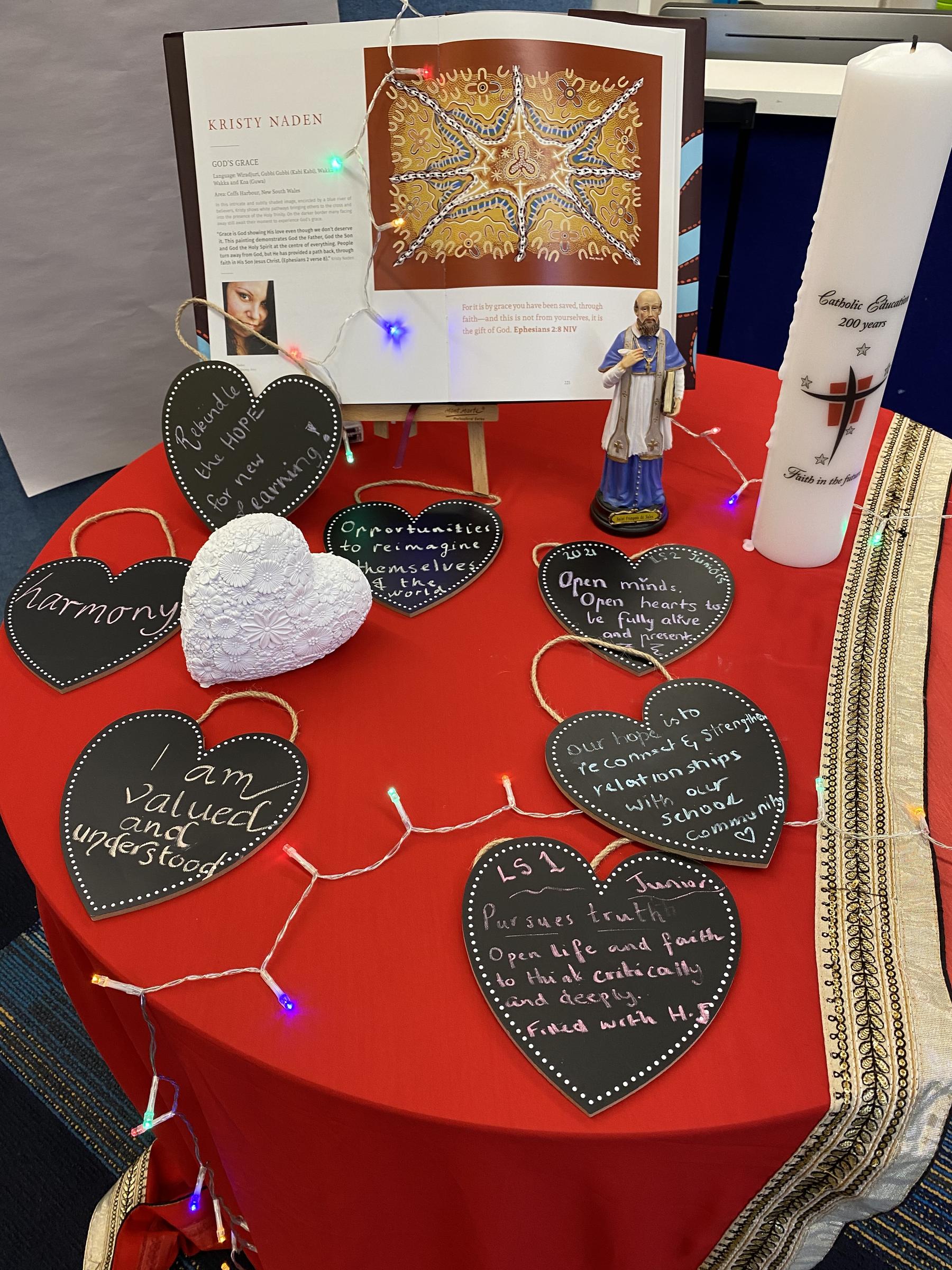Education in Faith

Sacramental Events and Dates
Dear Parents/Guardians/Caregivers,
Please take note of the important dates for our Sacramental celebrations that will take place throughout the school year. Sacraments play a significant role in the spiritual journey of our students and we need to ensure that you are well-informed and can actively participate in these meaningful events. Kindly mark the following dates in your calendar:
Event | Date/Time/Venue | Participant Group |
Term 3
| ||
| Sacrament of Confirmation Retreat Day | Tuesday 3rd September St. Francis de Sales (9 am- 3 pm)
| St. Kevin’s and St. Francis de Sales Year 6 |
| Sacrament of Confirmation | Saturday 7th September St. Kevin’s Church
| St. Francis de Sales 2 pm - Year 6 |
Term 4
| ||
| Reconciliation Commitment and Enrolment Mass | Tuesday 8th October 6.30 pm - Registration 7.00 pm - Mass St. Kevin’s Church
| St. Kevin’s and St. Francis de Sales Year 2 |
| Reconciliation Information Night | Tuesday 15th October 7 pm - 8 pm St. Kevin’s School Hall
| St. Kevin’s and St. Francis de Sales Year 2 |
| Sacrament of Reconciliation | Tuesday 19th November 7 pm St. Kevin’s Church | St. Kevin’s and St. Francis de Sales Year 2
|
If you have any questions or concerns regarding the Sacramental Program, celebrations or preparation process, please feel free to contact the School's Religious Education leader.
Thank you for your continued partnership in the spiritual formation of our students. We look forward to celebrating these sacred moments with you and your families as a parish community.
May God's blessings be with you and your loved ones.
Sacrament Levy
There is a $25 Sacrament Levy to cover the cost of stoles.
- This levy needs to be paid in full to the school in an envelope clearly indicating your child’s name, Home Group and name of Sacrament being received.
11th Sunday in Ordinary Time - Year B
Gospel Focus – The Kingdom of God
The references to the kingdom of God in the gospels always carry a paradox. It exists in the present, yet is something to be achieved in the future. It is here, but not yet. If we live ‘as if’ we are living in the kingdom here and now then we hasten its coming. The kingdom of God is not a place but a way in which the world operates. It is a kingdom that is ruled by justice and gives precedence to those who are regarded as nothing in the world. It is a kingdom of promise and hope that inspires and calls all people to more than they currently are.
Scriptural context – Kingdom Parables
Jesus sought to describe the kingdom of God by comparison and analogy – ‘The kingdom of God is like … ’; ‘To what can we compare the kingdom of God?’ He never gave a lecture about the kingdom, rather, he painted a picture in terms that were readily recognised by his audience but forced them to think differently about the image he used. It forced them to think about themselves and their world in a different way. Kingdom parables begin innocently enough with a familiar image but very quickly shift to a challenge about the way we normally perceive things. The kingdom is often portrayed as a contradiction.
Living the Gospel – Seed on the land
The first parable in the gospel passage describes the unerring work of the kingdom. It is like the seed that almost magically transforms into a fully grown plant that may be harvested – apparently without any external forces. Of course, we know that plants need to be fed, watered, weeded and nurtured to ensure their proper growth. However, the kingdom of God works in our lives in a similar way – if we feed and nurture it, the kingdom will produce a great harvest. Even if we don’t pay it attention, the kingdom is present and acting in our world.
Discussion Starters
- What comparison is being made between the kingdom of God and the seed growing night and day?
- What is a literal interpretation of the parable of the mustard seed?
- How does knowing some of the social context of a passage help in understanding and interpreting?
- Why do you think Jesus so often taught through parables?
- Why might Jesus have avoided a direct description of the kingdom of God?
- What messages about the kingdom of God do the two parables relate?
- Why might Jesus have used the device of comparing the kingdom to familiar images?
- Why is it important to have a contextual understanding of scripture?
- What image could you use to describe the kingdom of God?
- What is your understanding of the kingdom of God?
God Bless
Rozeta Ambrose
Religious Education Leader
rambrose@sfslynbrook.catholic.edu.au
GRADE 5/6 SOCIAL JUSTICE TEAM – MINI VINNIES
MINI VINNIES WINTER APPEAL – FEAST OF THE SACRED HEART
Mini Vinnies collected and counted all the donations for this week:
1st | Teresa | 124 |
2nd | Bosco | 102 |
3rd | Mackillop | 93 |
3rd | Patrick | 86 |
A big thanks to the SFS Community and those families who have donated. We will be extending the Winter Appeal until Friday, 21st June which is when the SVDP Conference will pick up the items.
COMMUNITY SPIRIT HOUSE POINTS
Which House is leading in the Community Spirit Award points? Student are able to earn points for their House by demonstrating community spirit which includes our PBL values. The Winter Appeal donations also go towards the Community Spirit points.
The points for each House so far:
1st | PATRICK | 3,577 |
2nd | TERESA | 3,509 |
3rd | MACKILLOP | 3,223 |
4th | BOSCO | 3,188 |
Well done to Patrick who is leading at the moment. Let’s see who is leading next week. And don’t forget students will also receive points for bringing in items for our Winter Appeal.
Giuliana & SFS Mini Vinnies





